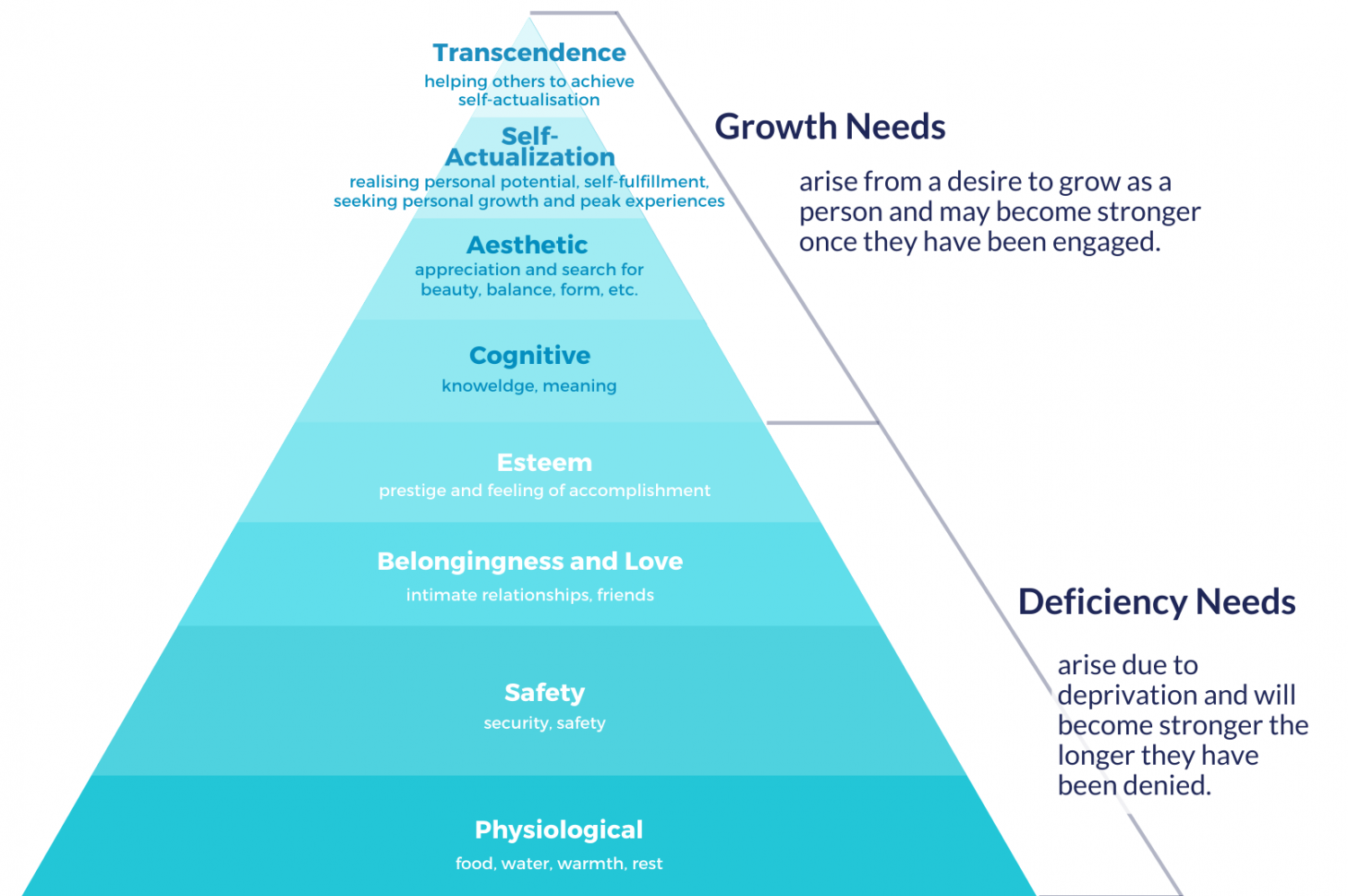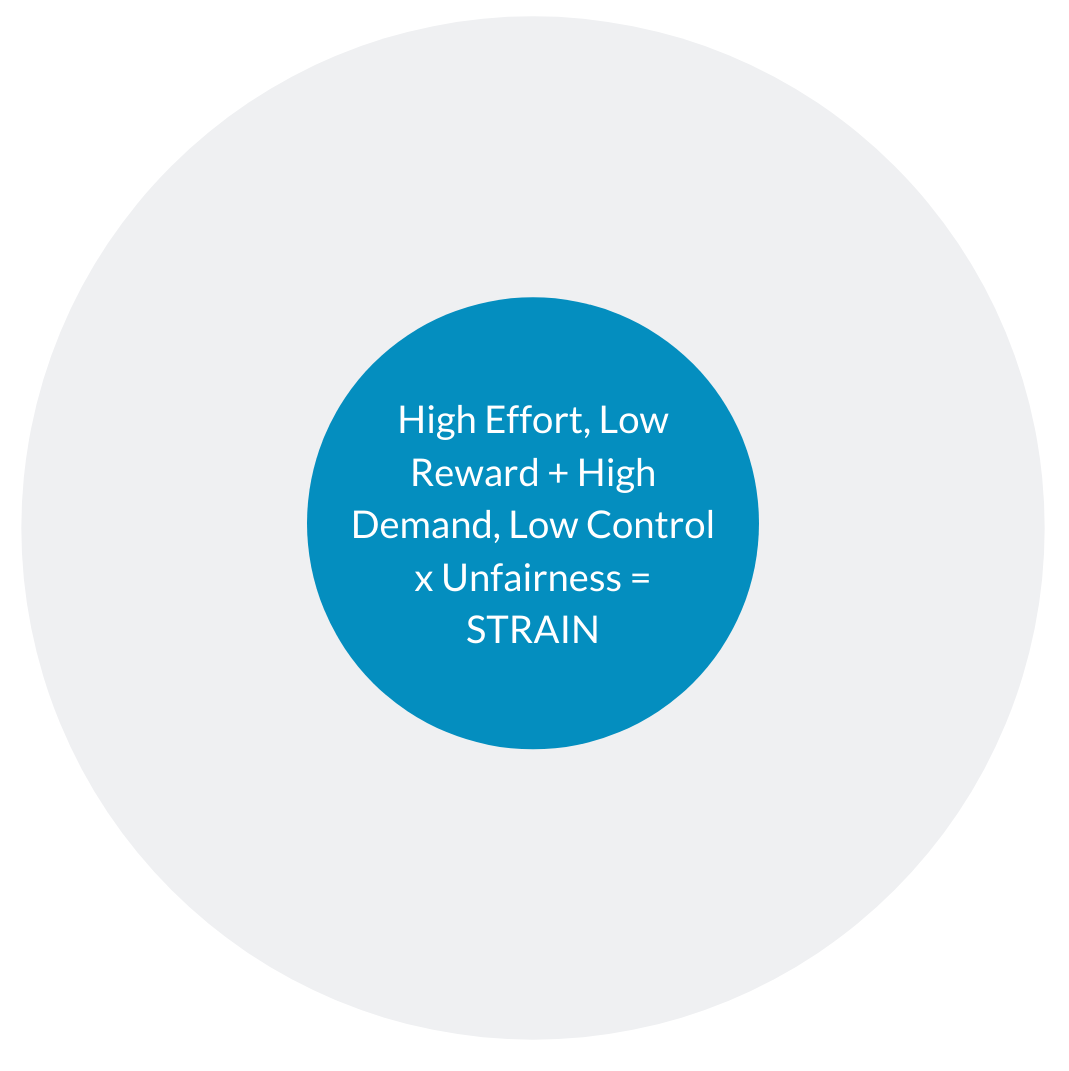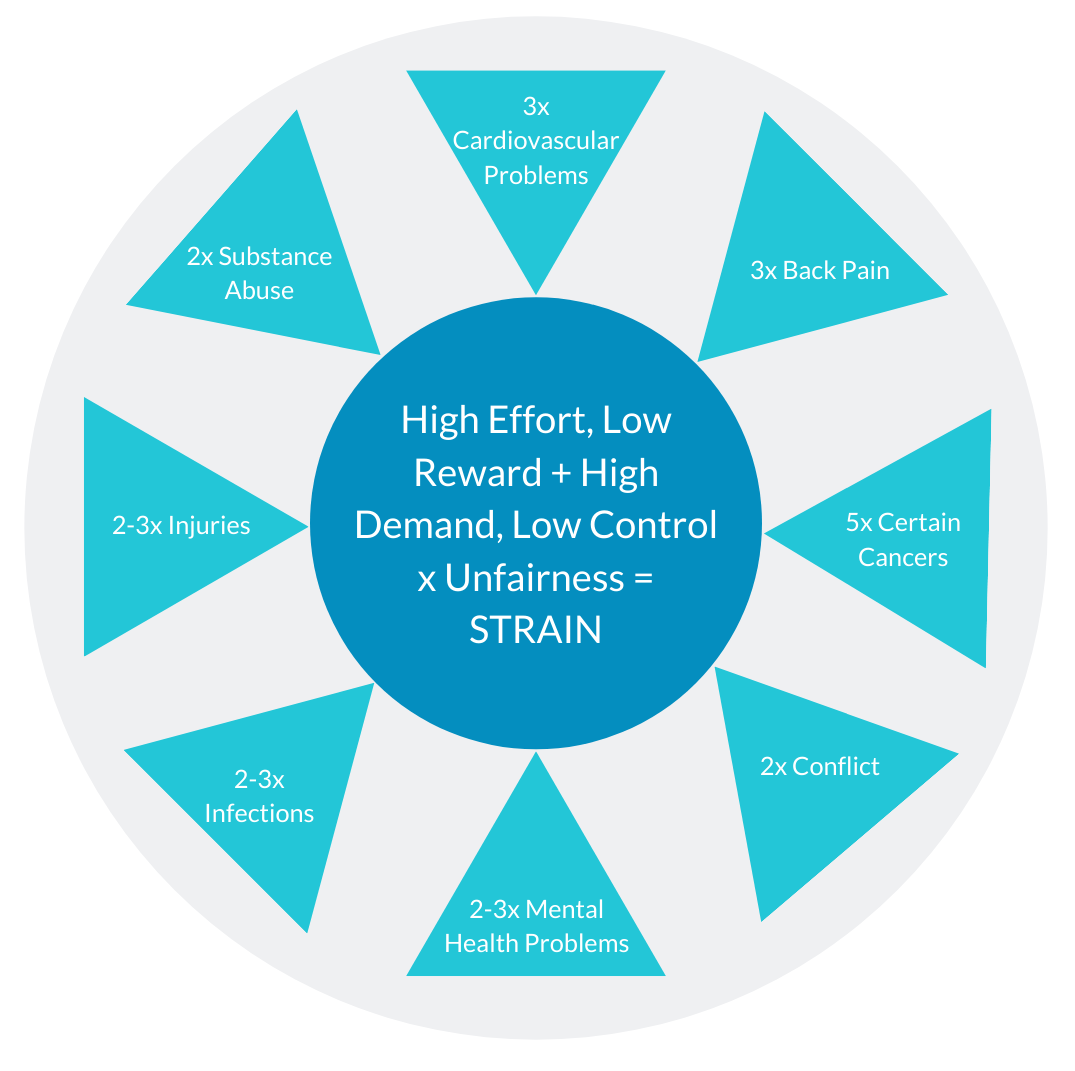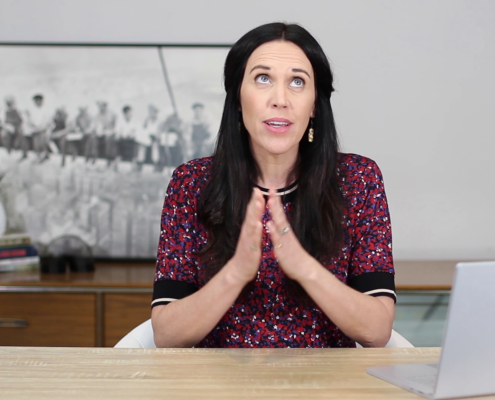A good place to start in understanding hazards to mental health, is to first understand our needs; that is, what factors must be met in order to provide a psychologically safe and healthy workplace, and then work backwards to see how those needs might be impeded?
Maslow Hierarchy of Needs
You’re probably familiar with Abraham Maslow’s Hierarchy of Needs which is a model of human motivational theory in psychology and it comprises an eight-tier model of human growth and deficiency needs.

You can see here, our need to have food, water, shelter and sleep, to feel safe and secure, to belong and create relationships and feel a sense of self-worth and to have self-esteem are all part of our Deficiency Needs, and Maslow suggests that these needs arise when they are not met, and these needs become stronger the longer they are not met. Whereas, our need for growth and development, to find meaning in our life, and to realise our full potential and to help others do the same are what Maslow refers to as Growth Needs and these needs arise from a desire to grow as a person.
Unlike our Deficiency Needs, our quest to fulfil our Growth Needs becomes stronger once they are engaged, not whether or not they’re being met.
So there are five human needs that research has found must be met to support mental health at work and they’re all captured in Maslow’s Hierarchy of Needs.
1. Secure and Physiologically Safe
Not surprisingly, the first human need to support mental health at work is also one of the first deficiency needs in Maslow’s Hierarchy; that is, our need to feel Secure and Physiologically Safe.
I’m not going to focus too much on this one because we generally understand that this will require organisations and its employees to work together proactively to develop and implement measures so that people’s health and safety needs, rights, and risks are recognised and accommodated to a reasonable degree.
2. Self-efficacy, Accomplishment and Autonomy
The second human need that must be met at work in order to support our mental health is our need for Self-efficacy, Accomplishment and Autonomy. In Maslow’s Hierarchy, these fall under our need for Esteem.
There are two particular models that I want to draw your attention to, specifically in terms of their role on the design and organisation of work and the impact this can have on our need for autonomy, self-efficacy and ultimately our need for accomplishment.
Job Demand/Control/Support Model
The first model is called the Job Demand/Control/Support Model. Basically, it suggests that when we have low levels of control or influence over our work, such as the day-to-day organisation of our work – what we do, when we do it, and how we do it, combined with a high workload or high levels of work demand, then this will create stress and contribute to a variety of adverse health outcomes.
But if we have more control and autonomy over how our work is done, it can moderate the negative effects of high work demand on our mental health. Control in this context includes feeling like we have “voice”, meaning we have a perceived freedom to express our views or feelings and importantly that our views are heard, so that we don’t feel like we’re just another cog in the wheel, which not only impacts on our stress levels, but also our sense of accomplishment.
Additionally, when workers receive help and assistance or support from others, specifically co-workers or supervisors, this can act as a moderator of the negative effects of high work demand on our health. Perception has a lot of influence on our emotions, and from an employee perspective, organisational support is perceived as caring; that is, our employer cares about us and values our contribution.
3. Self-esteem
The second model in the design and organisation of work deals with the third human need that must be met in order to support mental health at work; that is, our need for self-esteem.
Effort/Reward Imbalance Model
The Effort/Reward Imbalance Model suggests that low reward (perceiving too little compensation, or acknowledgement of our effort in terms of status, financial gain or career advancement) coupled with high levels of effort (giving high levels of mental or physical energy to achieve an organisational goal) will contribute to stress and impact negatively on our self-esteem.
We can all appreciate that people want to be recognised, rewarded and acknowledged for their efforts and contributions. They want to feel like what they do actually matters, not necessarily that what they’re doing matters to the greater good of society, this is more about people wanting to feel like their work is contributing to the organisation achieving its goals. That if they weren’t there tomorrow, they would be missed, because they are valuable.
Both of these models, or rather, when work is designed or organized in a way that doesn’t meet our human needs, employees will perceive this to be unfair and this unfairness leads to stress.
In psychology stress is a feeling of strain and pressure, it’s a type of psychological pain and when we sustain stress in the workplace from an imbalance between strict job requirements, an inability to adapt and cope, and our perception of unfairness, this can turn into job strain.
Job Strain
Job strain is one of the most common forms of work stress and when we experience chronic stress, it can lead to job burnout, which is emotional exhaustion, cynicism, and negative self-evaluation.
 Job Strain
Job Strain
In terms of the impact on our mental and physical health, it’s thought that job strain brings about changes in our brain chemistry that causes various negative effects, such as depression, anxiety, demoralisation and other conflict-related problems like bullying or harassment. These negative effects launch a variety of complex attacks on our immune system, which makes us significantly more susceptible to infectious diseases, doubles or triples our risk of cardiovascular disease, which by the way was found to be the number one way people died in Australia in 2018. Job strain can also increase our risk of cancer, our use of alcohol and prescription or over-the-counter drugs and certain types of musculoskeletal injuries.
 The Effects of Job Strain
The Effects of Job Strain
This is important to note, because many people think that musculoskeletal injuries, that is, injuries to our bones, muscles, ligaments and tendons, are caused by hazardous physical activity, like certain manual tasks. But that’s not the only way these injuries are caused.
Musculoskeletal injuries, or sometimes referred to as musculoskeletal disorders, commonly lead to chronic pain and for some that will mean pain management for the rest of their life. And not only is that tragic because chronic pain has an impact on so many other areas of our life, but for many people with an opioid addiction, their problem often started with a chronic pain management prescription and right now, we have a global opioid epidemic.
Given one of the elements to job strain is our perception of unfairness, it’s therefore, probably not surprising that our fourth human need that must be met in order to support mental health at work is around fairness; that is, our need for Social Justice and Self-worth.
4. Social Justice and Self-worth
Social justice is interpreted in the workplace as fairness. We’ve talked about fairness in terms of the two Stress Models and the organization and design of work, but fairness is also necessary in how people perceive the distribution of work.
Because if we feel that there’s an inequitable distribution, particularly if we bear the brunt of that inequality, then not only are we not going to feel a sense of accomplishment because we’re struggling to get through the work on our plate, but because of the inequality we’re likely watching others succeed to our detriment, and this will be perceived as unfair or unjust.
Another issue in terms of our perception of fairness and job demands, is where the task or the job required of us consistently exceeds our skill or capacity – and this links in with our second human need that i mentioned earlier, our need for Self-efficacy or to feel like we are capable and competent. Like the Job Demand/Control/Support Model, where we feel it’s unfair that we don’t have control or autonomy over our work, when the work exceeds our skill or capacity, beyond what we would consider reasonable, we feel exploited and that is perceived as unfair.
Now that measure of reasonableness is quite subjective because we all have different breaking points, and resilience plays a big role here, but if we feel exploited for long enough, then this will slowly eat away at our self-esteem and self-efficacy.
We need work to challenge people so that they grow and develop their capabilities, in fact this promotes positive well-being, but if the challenge is seen as exploitative or unfair then it will negate the positive benefits that growth and development can bring and just cause resentment and job strain.
5. Belonging
So the fifth human human need that must be met in order to support mental health at work is our need to Belong.
Creating a feeling of belonging is about giving people security and support. It’s about creating a space where we feel safe to express ourselves and just be ourselves and feel cared for by our employer and colleagues. There are many ways organisations can create such as space, but a big one is through support from supervisors and colleagues with regard to advice, coaching, direction, planning, and provision of technical and practical resources and information, and that these resources are offered as a matter of course without prejudice or favouritism – this comes back to our need to perceive fairness.
A culture that prioritises psychological health and safety
If these five human needs that support our mental health at work are being met, what you have is a culture that prioritises psychological health and safety where consideration of the impact on people’s mental health is embedded in the way people interact with one another on a daily basis and embedded in the way working conditions and management practices are structured and the way decisions are made and communicated.
To achieve this, those in your organisation must have supportive systems, shared beliefs, understandings and daily positive experiences with demand, control, support, effort, reward and fairness. These six factors should always be considered in the design, organisation and distribution of work if an organisation wishes to establish and sustain a culture that prioritises psychological health and safety. And these should be considered as part of your governance framework as well as how you behave in the boardroom.
It’s so much easier to work with where your board has influence on people’s mental health, when you know the foundational principles you’re working with. And that is always my goal. To give you the information you need to know what to ask and when to act.
Be brave and stay true to your commitment to lead from the heart and I’m confident you will reap the rewards.
All my best
Sam
Welcome!
I’m Samantha
I help board members succeed in the boardroom and make a positive impact on the health, happiness and resilience of society through their effective leadership and governance of safety, health and well-being.
RESOURCES
YOU MAY ALSO LIKE…
FEATURED CONTENT
[text-blocks id=”4249″ plain=”1″]








Let us know what you have to say:
Want to join the discussion?Your email address will not be published.